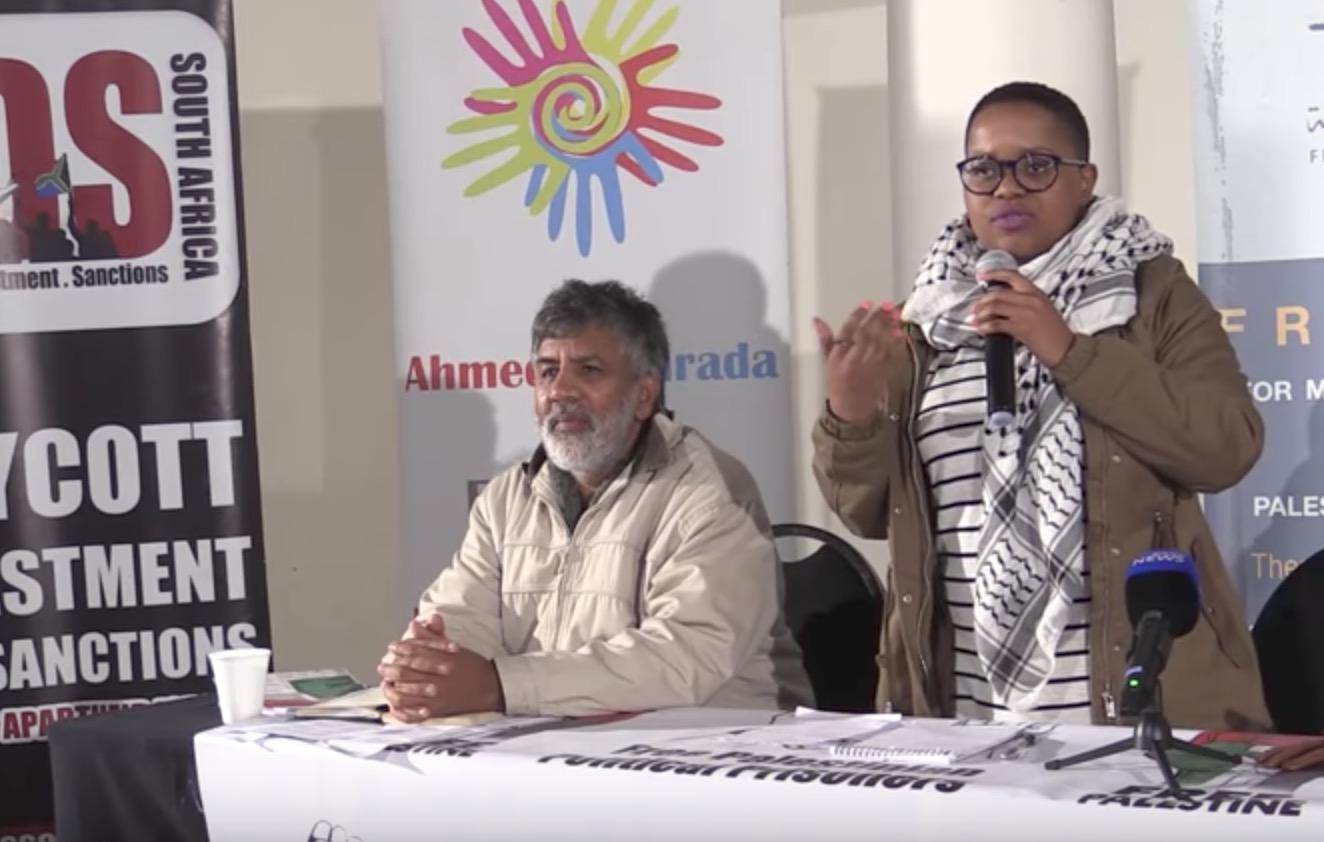Senior South African anti-apartheid figures go on hunger strike in solidarity with Palestinians
Current cabinet ministers and campaigners once imprisoned on Robben Island take part in symbolic 24-hour fast

Your support helps us to tell the story
From reproductive rights to climate change to Big Tech, The Independent is on the ground when the story is developing. Whether it's investigating the financials of Elon Musk's pro-Trump PAC or producing our latest documentary, 'The A Word', which shines a light on the American women fighting for reproductive rights, we know how important it is to parse out the facts from the messaging.
At such a critical moment in US history, we need reporters on the ground. Your donation allows us to keep sending journalists to speak to both sides of the story.
The Independent is trusted by Americans across the entire political spectrum. And unlike many other quality news outlets, we choose not to lock Americans out of our reporting and analysis with paywalls. We believe quality journalism should be available to everyone, paid for by those who can afford it.
Your support makes all the difference.More than a dozen South African politicians and several anti-apartheid activists and public figures have completed a day-long fast to draw attention to the fight of hunger-striking Palestinians protesting conditions in Israeli prisons.
Cabinet members including deputy president Cyril Ramaphosa and deputy minister of international relations and co-operation Nomaindia Mfeketo – who herself was detained several times in the 1980s for anti-government activism – did not eat or drink for 24 hours from Sunday evening to Monday evening in solidarity with Palestinians who have now entered their second month of a hunger strike.
The “Freedom and Dignity” strike involving about 1,600 Palestinian prisoners in eight jails is over a range of issues, from access to telephones, lawyers and better medical care to ending solitary detention.
“To many of us our solidarity in this campaign is very personal because of our own experience under apartheid. We too, like the heroic Palestinians, were once called terrorists. We, like the Palestinians, were detained. We, like the Palestinians today, embarked on hunger strikes from our prison cells in protest against apartheid South Africa’s human rights violations.
“We also note the growing number of South African Jews who have joined this 24-hour fast and are in protest against Israel’s discriminatory policies. They remind us of our own white comrades who refused to let the apartheid government speak in their name,” Ms Mfeketo said in a statement on Monday.
Former Robben Island political prisoner Ebrahim Ismail Ebrahim, artist Natalia Molebatsi and a number of other civil society leaders spoke at a public event on Johannesburg’s Constitution Hill on Monday in support of the Palestinian protest. Dozens more public figures and organisations pledged solidarity with the prisoners.
Around 6,500 Palestinians are currently detained in Israeli prisons, most for terrorism convictions, although Palestinian leaders and prisoners’ groups maintain that many have been unfairly tried or are political prisoners.
A further 500 are detained under what is known as Administrative Detention, which allows suspects to be held without charge for six-month intervals.
There have been several hunger strikes mounted in the past, but never on so large a scale.
The current protest is being led by Marwan Barghouti, a popular Palestinian leader jailed by Israel for life for five murders.
Israeli authorities have condemned the strike and the country’s prison service has said it will set up a field hospital to treat hunger strikers if necessary.
After 30 days of consuming nothing but salt water, many protesters are growing increasingly weak – but a statement from one striking faction said prisoners were considering also refusing water since their demands have not been met.
There is widespread support for the strikers across both the West Bank and Gaza. More than 50 restaurants in the Gaza Strip took everything off the menu except salt water in a publicity stunt earlier this month.
Online, a social-media campaign dubbed the “salt water challenge” has attracted attention across the world after Palestinian pop star Mohammed Assaf downed a glass in a YouTube video, spurring on thousands more to take part.
Join our commenting forum
Join thought-provoking conversations, follow other Independent readers and see their replies
Comments